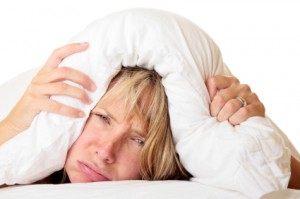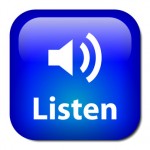 Have you ever opened your eyes in the morning only to find that you’re permeated by anxiety?
Have you ever opened your eyes in the morning only to find that you’re permeated by anxiety?
It’s a distressing feeling. Especially when you’re not sure why it’s happening.
Today I want to explore the causes of morning anxiety and how you can stop it.
To begin, you should know that morning anxiety is common. So I hope you don’t feel like you’re the only poor soul in the world that has this problem. Waking up anxious isn’t some bizarre anomaly in this regard.
After all, simply because you’ve fallen asleep doesn’t mean that your mind and body have stopped being affected by anxiety, rather while you’re asleep you’re merely unaware of it.
Imagine how much stress you’re under. How much fear, sadness, and uncertainty you’ve endured. How are you supposed to go through all that and not be affected by it?
The answer is you don’t.
I can remember that at the height of my anxiety I woke up anxious for weeks at a time. I’d sit up and the first thing I’d do is scan my brain and body for the telltale signs of anxiety. And like clock work it was always there waiting for me. But I got through it.
The good news is that there’s no mystery as to why this happens. The cause of morning anxiety can be attributed to 3 key things:
- Stress hormones
- Anticipatory anxiety
- Sensitization
Now, I don’t want to gloss over the fact that there can be, and indeed there are, more reasons for morning anxiety. What I’m saying is that these are the core reasons.
You can also do a lot to counter morning nerves. There’s no need to allow this to continue indefinitely. Here’s a list of helpful counter measures:
Solutions for Morning Anxiety
- Aerobic & Anaerobic exercise
- Yoga
- Progressive muscle relaxation
- Magnesium supplements
- Omega 3 fatty acids
- Music therapy
- Massage therapy
- Vitamin C
- Black tea
- Crying
- Laughing
- Avoid Caffeine and excessive alcohol
- Avoid illicit drugs
- Get 6-8 hrs of sleep
To help me explain the three components of morning anxiety and their remedies I’ve produced a podcast that drills down to the granular details.
In this podcast I discuss:
- Causes of morning anxiety
- Calls from AG readers
- Morning anxiety counter measures
Press listen now
References
Gauthier, A., Chevrette, T., Bouvier, H., & Godbout, R. (2009). Evening vs. morning wake EEG activity in adolescents with anxiety disorders. Journal of Anxiety Disorders, 23(1), 112-117. doi:10.1016/j.janxdis.2008.04.005
Zubin Bhagwagar, Sepehr Hafizi, Philip J. Cowen. Psychopharmacology. New York: Oct 2005. Vol. 182, Iss. 1; p. 54
Psychopharmacology (2005) 182: 54–57
DOI 10.1007/s00213-005-0062-z
Portella, M., Harmer C., Flint J., Cowen P., & Goodwin G. (2005). Enhanced Early Morning Salivary Cortisol in Neuroticism. The American Journal of Psychiatry, 162(4), 807-9. Retrieved July 30, 2011, from ProQuest Psychology Journals. (Document ID: 825414381).
https://www.unm.edu/~lkravitz/Article%20folder/stresscortisol.html






Good topic, I have dealt with this for years. Thank God for an SSRI as that has helped a great deal. Exercise not too late in the day, limiting caffeine, prayer, a good therapist and getting a good nights sleep have been helpful,Also, I am careful not to let shame about your anxiety run your life. I talk openly about it and desensitize it. Love the insight about stress hormones, anticipatory anxiety, and sensitization.
Thanks Jay. I liked your tips as well. Sometimes you have to try a bunch of things until you find something that works for you.
Good Morning Paul,
Great topic with many examples we can all relate to. For me, Anticipatory anxiety is what I suffered from the most. I use to get that, what I call, the flood effect upon waking. The first couple of seconds would be fine, I’d think great, no symptoms, but then that was the trigger. They would all immediately come flooding in, the racing thoughts, the I’m not okay feeling, and sensations. The rest of the morning would go pretty much the same, until I got into work and had work related problems to deal with. One of my coping strategies is to face it, accept that I may wake and feel anxious. Some how accepting it, and taking responsibility for it has helped me to be more relaxed. I then am able to move through my morning routines not to fueling the symptoms because I know I am going to be okay. Positive Self talk can really come in handy during this period.
I like your continued suggestions for exercise, as it has been one of the things that has helped me the most in dealing with anxiety. Thanks for the pod cast. Have a great day!
Paul…thanks for creating this blog…its a great help for all who suffer…sometimes in silence with anxiety…
Yes, very good topic. My anxiety is always at it’s worst right when I wake up. I am doing well with it now, however when I am in a full blown anxiety attack, you know the ones that last a couple of weeks, the mornings start off bad. I will wake up perfectly fine, and then a few seconds later, its like bam! the anxiety hits full force. It’s a really crappy way to wake up. One of my theories is that, as soon as your body wakes up, it has to shoot in some hormones, adrenaline, whatever, to get your body into an awakened state and out of the sleeping state. When your in an anxiety attack, your body is extra sensitve to this rush….and it causes extra anxiety. Note: this is just some of my thinking, don’t take it as scientifically studied (that’s Pauls job LOL). How do I make it through the morning? I get myself out of bed quick and get my mind on a task or something else, like make the bed right away, jump into the shower, get the day started, and it eventually subsides. The key to not waking up with it in the first place, it seems with me, starts the night before, calming myself with all of the things mentioned above by Paul.
Thank you, Paul. This is the first podcast of yours i have listened to. I found it to be interesting and helpful… and full of hope. The most important thing I take away from this podcast is the importance of doing healthy things (exercise, massage, etc) even when you are not anxious. I have tended to forget about these when feeling better, but then, of course, the anxiety returns. I am 58 and have had low bone density for years. I recently have been tested and found to have high levels of cortisol, and a huge AHA occured in my brain…. the link between cortisol, and anxiety, cortisol and low bone density. I have not figured it all out yet…. chicken and egg thing…. but when I return to the US in a couple of weeks, and see my rheumatologist re the high cortisol levels, i look forward to hearing if anything can be done about them….and maybe this will help my anxiety levels, as well. But whether the cortisol causes the anxiety or the reverse…. I am not clear on yet.
The other thing that has helped me is deep breathing…. not sure you mentioned it in your podcast… but for me it is a lifesaver.
Thank you you for your helpful, hopeful manner and caring. It is great that you are doing a masters. People who have been through the anxiety experience and learned to cope, can be helpful to others. This is a good thing.
Paul, of course… I appreciated this topic! Thanks for taking my call and letting me be part of the show. I really suspect that this is one of the more common issues we sufferers face.
I wish there was a more direct method to tame morning anxiety, but I think your point was correct in that morning anxiety is more a symptom of the issue than a cause. I agree with that and I’ve had a recent good spell of days… and the morning anxiety simply wasn’t anywhere near as strong. So, as your whole system winds down… so does the AM anxiety.
That said, it was really odd that I noticed the new podcast today because I DID have pretty bad morning anxiety today after putting about 2 weeks together where I was doing much better. Weird but good coincidence that your podcast was waiting for me this morning. I had some kind of “event” in my sleep, I guess. (Panic or breathing issue.) So, now it’s just about acceptance and ramping the symptoms back down to normal.
Also interesting that you mentioned magnesium. I’ve taken it before without noticing much, but I recently started taking Magnesium Glycinate. Could just be coincidence, but I had a good spell right after starting it. So, it’s worth looking into for people… and remember that all forms of magnesium aren’t created equal. It’s worth doing some research. Glycinate was where I ended up. We’ll see over time if it does actually help some.
Anyway, thanks again for this topic. MUCH appreciated. I hope people can continue to comment here and offer support and suggestions as a couple have done already.
Best wishes to everyone dealing with this, and remember that we all can and will get through this. These are temporary states in our lives.
Just checking back in with people. Has anyone made any changes in their routine to attempt to curb the morning issues? I’ve recently went into a setback, but for about a month prior to this had done better… and I had noticed that my mornings during that time were definitely more tolerable. Still the worst part of the day, but much better than when my anxiety is overall worse. (Like now.) I did try taking a walk one morning, but not really early enough. I wanted to try to get out and do an early morning walk one day when I didn’t have work to see how I responded. But, it’s 108 in Los Angeles today so maybe this isn’t the weekend to do it! lol! But, just checking in to see if anyone from this thread has had any insights or tried anything new. I do still recommend trying the magnesium glycinate, and meditating at night seems to help me get to sleep much easier. Be well all!
Also, was just listening to some Claire Weekes audio, and hear these quotes…
“It is strange how the morning has a disconcerting habit of paying any regard to improvement of the day before.”
“People are disappointed after retiring to bed feeling cheerful, only to wake feeling the same heart of lead, the same strange feeling of foreboding…”
While her recommendations are too long to type here, she essentially suggests rising on waking, and working at a steady pace, with acceptance being the key to all. Not fighting, and not “seeking salvation in hectic, tiring distractions.”
Of course, anyone reading this post likely has anxiety… and anyone who has anxiety should be reading Claire Weekes material daily anyway, imo. 🙂
But, it’s just more confirmation that this morning issue is not just common, but it’s been part of the anxiety equation for ages, as her work (over 40 years) was done many years ago.
OMG! The 2 last parts are totaly me. I felt fine so I was trying to quit my SSRI but some stuff happened and now my anxiety is back. I was also out of omega 3 and not exercising too much since my yoga class ended.
I was feeling fine so I tought I could quit. But now I’m feeling crappy again. And looking for answers which come in all forms and sometimes contradict eachother. I know it will pass. It’s just that everytime it comes back I’m afraid of how long it will last. It’s been almost a year since my last episode if I may call it that. I just hope it won’t last long like the time it lasted over a year.
thanks for making me feel a little better. 🙂
Thank you, thank you, thank you Paul!!! I just discovered your website this morning and I was suffering from morning anxiety that was making me feel insane. Your honest, helpful, caring approach in the podcast and information about cortisol turned around my understanding and my mood. I’d like to thank the callers who had the courage to call in and ask questions.
I’d like to add that meditation done correctly has been really helpful to me but, again it’s important to do the practice when times are ok. All the best in your career in psychology. I think you will continue to help a lot of people.
Great information Paul! I had been using all of the solutions you listed with the exception of magnesium. I would often wake in the early morning hours and feel stress hormones coursing through my veins. It’s a rude awakening to say the least! I’ve since added magnesium supplements and I’ve noticed a remarkable difference. I haven’t woken up to that uncomfortable feeling in several weeks!
Thanks for a great post and podcast Paul, and for everyone sharing their ideas on this. I have a fair bit of anxiety in the morning, but I know it is due to my Fibromyalgia. Because the symptoms vary from day to day (hour to hour, really), I wake up anxious wondering what will hit me today. I get the most anxious when I am expecting a tradesman or someone who will be coming by the house, since I don’t know if I will be well enough to get dressed and ready when they come by. Sounds silly, but somedays when I have to make a choice of what one activity I will do (since that’s all I have evergy for), I get uptight hoping I will get through the day ok.
Does anyone else have an energy issue like me, and do you worry how you will get through your day?
Paul
great topic. I get up at 5 in the morn for a workout. The first thing i notice is repressed anger and BP slightly spiking up. I go on to workout and i find i am pretty cool. Light weights and aerobics can do wonders.
Secondly when i am in a jolly moon celebrating with friends with backslaps and excitement, all of a sudden i feel a fleeting chest pain. I am thrown into a flurry whether it is workout related, indigestion or just anxiety. Even talking for long hours builds a whitecoated anxeity and hypertension for no reason at all. Though much of it is well controlled and a i am a public speaker and have no stage fright, talking fast and with excitement produces anxiety. I dont know how many other suffer from the same.
Paul could you kindly throw some light on the same. Regards
I had severe morning anxiety to the point where I could only lay down waiting for the evening to come, the only time I could relax and think properly. For no reason whatsoever my adrenaline and/or cortisol were skyrocketing in the morning after 30 minutes waking up. I would not wish that awful feeling to my worst enemy. I also developed intolerance to some food, especially wheat and probably increased my body inflammation. I am now taking a SSRI called Lexapro (I tried Aropax but did not do much for me) which is one of the most popular SSRI for anxiety. However it did not work 100% and still had brain fog, lack of concentration, poor memory and lack of energy.
I have tried so many supplements I hardly remember all of them. Recently I discovered some so-called adaptogen herbs/mushrooms and made a great difference in my level of energy, concentration and memory. Since I discovered them I have been reconsidering the root cause of my morning anxiety which is possible chronic stress. These adaptogen herbs are known to relief from stress and made me feel like I was ten years ago, before I fell into the awful anxiety tunnel.
I now regularly take ashwagandha extract, or Withania somnifera, (standardized to minimum 5% withanolides) at night which helps me to sleep soundly and Cordyceps and Rhodiola Rosea (standardized to 3% rosavins and 1% salidroside) extracts in the morning. Cordyceps’ effect, in particular, lasts almost all day and makes a big difference for me. Schisandra and Jiaogulan are also good adaptogens.
I believe there are many types and causes of severe anxiety and the only way to find a solution is to try as many supplements as possible and find the one that works the best with limited side effects.
With regards to non adaptogens, theanine and glutamine are also very popular but did not much for me. GABA supplements do not pass the Blood–brain barrier so they are potentially useless. There are some genetic mutations that do not allow to convert some vitamin Bs to their active form, so another potential avenue is to try a good supplement with Active/coenzymated forms of vitamin Bs. Sublingual delivery, beside intramuscular injection, is the most potent/efficient form for those vitamins and their bioavailability. I also tried Phosphorylated Serine (seriphos) which is supposed to lower cortisol levels but it did not improve much my situation despite the fact that, suffering from morning anxiety, the cortisol levels should play a key role in causing it considering they are at their peak in the morning.
If you really want to explore further and find a potential any genetic cause for your anxiety/depression you can also take a DNA test with 23andme.com and plug the raw data files into third parties genetic explorers such as livewello.com, promethease.com, nutrahacker.com, geneticgenie.org, knowyourgenetics.com and decodify.me. Some of those genetic explorers can find out whether you have a genetic mutation that affect the methylation in your body. In this case active form of B9 (methylfolate), B12 (methylcobalamin, hydroxocobalamin or adenosylcobalamin) and B6 (Pyridoxal-5′-Phosphate) could help.
After a decade of personal research, I hope it may help someone else in my situation who is suffering from severe morning anxiety. There is indeed light at the end of the tunnel. Stay strong and do not be afraid to try several supplements.
Fabio
PS: Vitacost.com, iherb.com, Swansonvitamins.com are some of the best websites where I buy most of my supplements
I suffered my nearly my entire life with debilitating morning anxiety and later depression. The first third of my life I wasn’t really aware of it because I didn’t know anything different and it was normal for me. I only realized what normal was when I first took a xanax. I never took another one though because it felt such a relief that I feared I would easily become addicted to it.
Later I found that phosphatidylserine taken before bed really helped. I assume this was because of its affect on cortisol.
In the end I can say that the thing that finally eliminated morning anxiety completely for me was going on a ketosis diet..After 50 years of suffering it was finally gone. An added benefit to the diet was the quality of my sleep improved incredibly.as well.
Since that time (three years ago) I have tried my best to stay in ketosis as much as possible and neither my anxiety nor depression has ever returned even under several periods of incredible stress.
I don’t know if I have some peculiar genetics but I swear by it and hope it may help someone else as well.. .